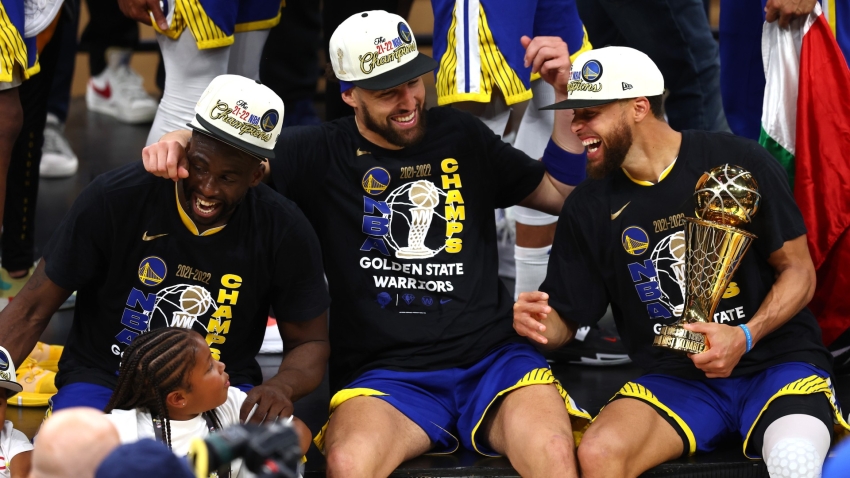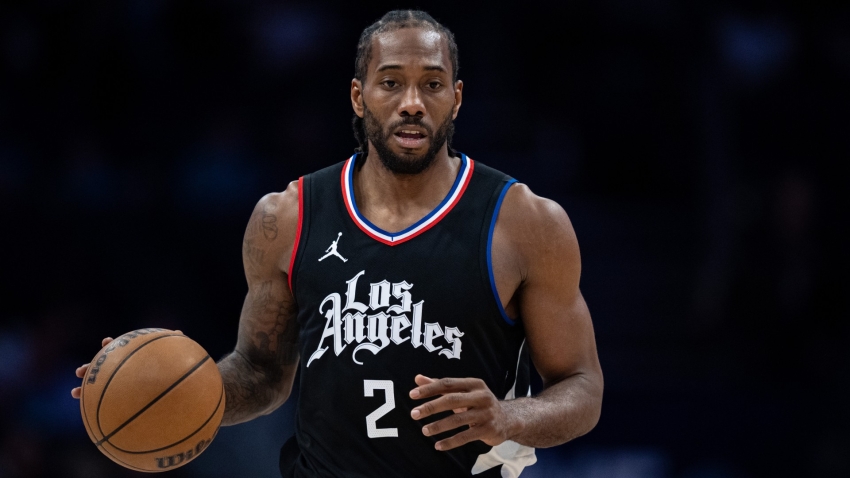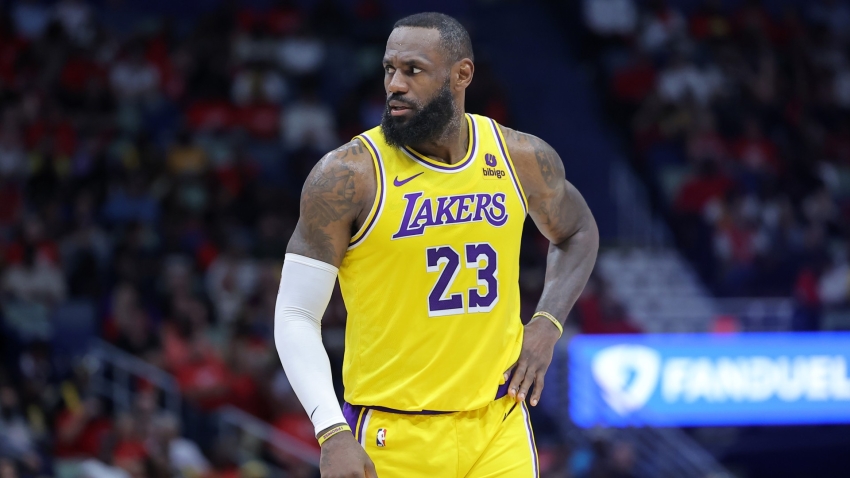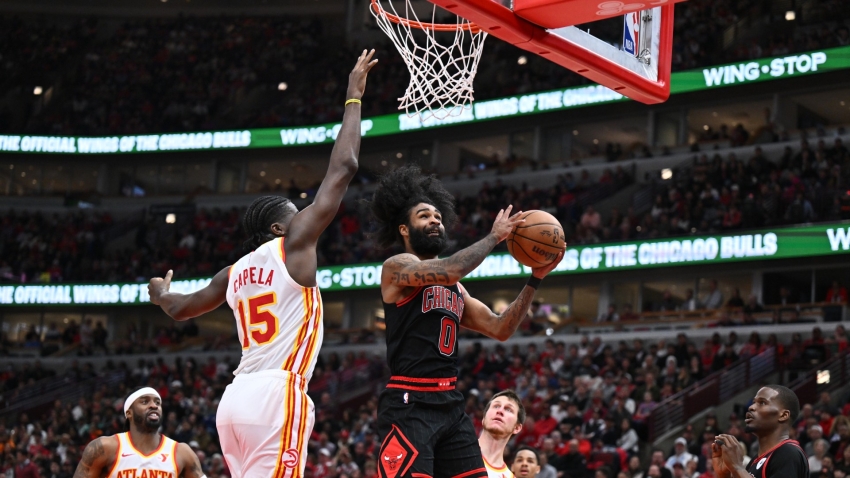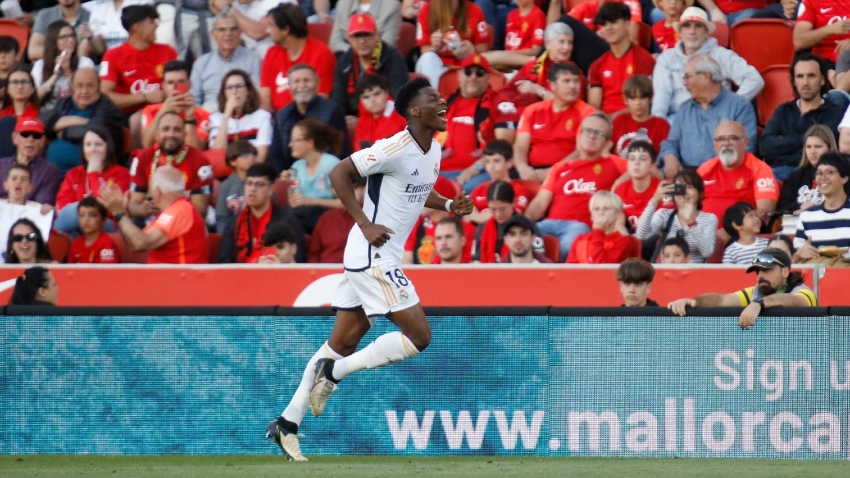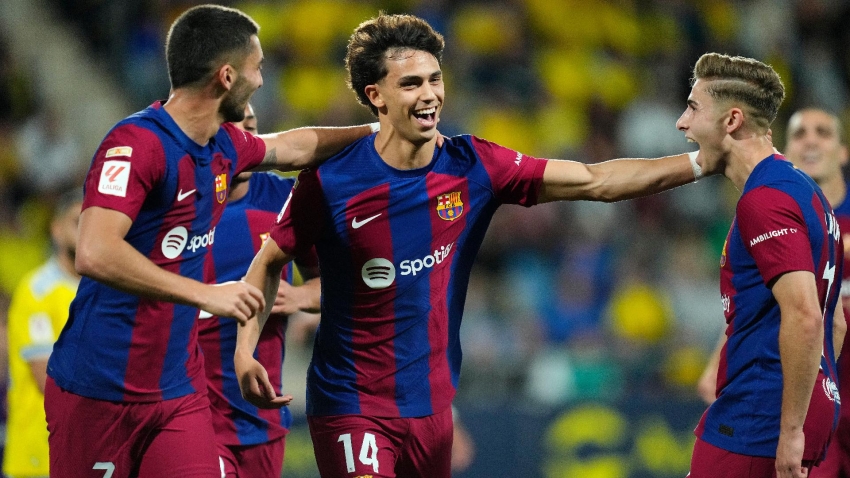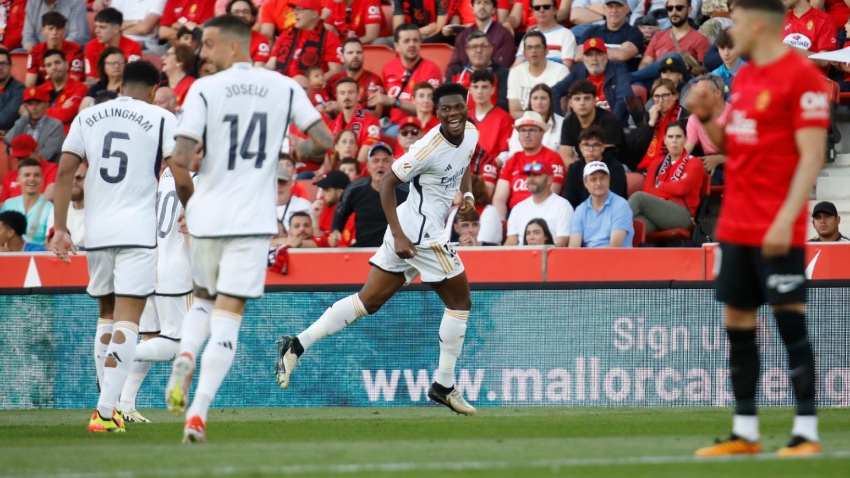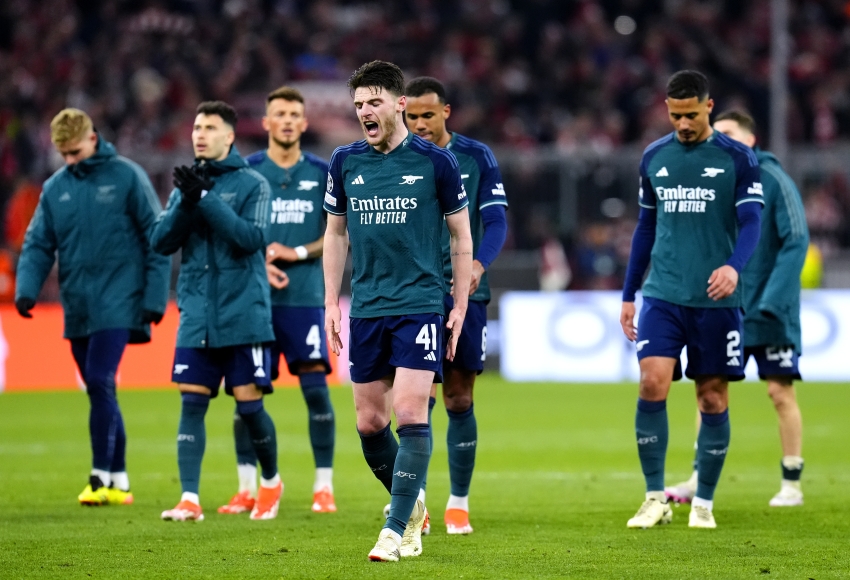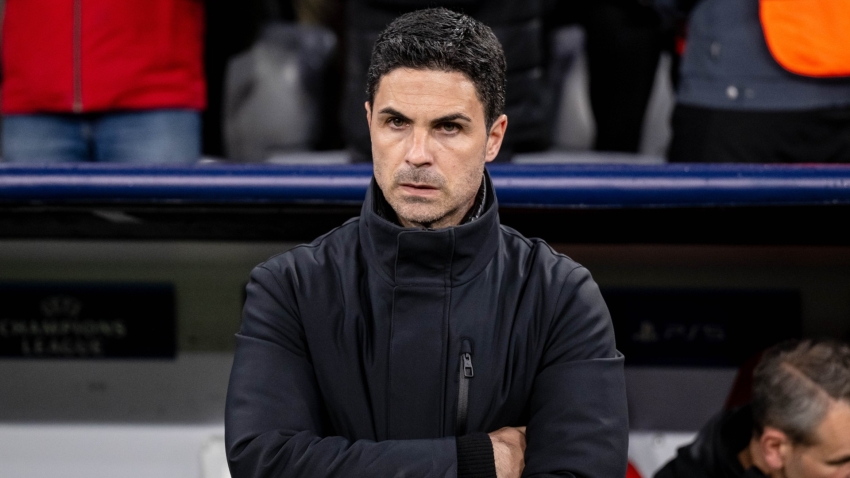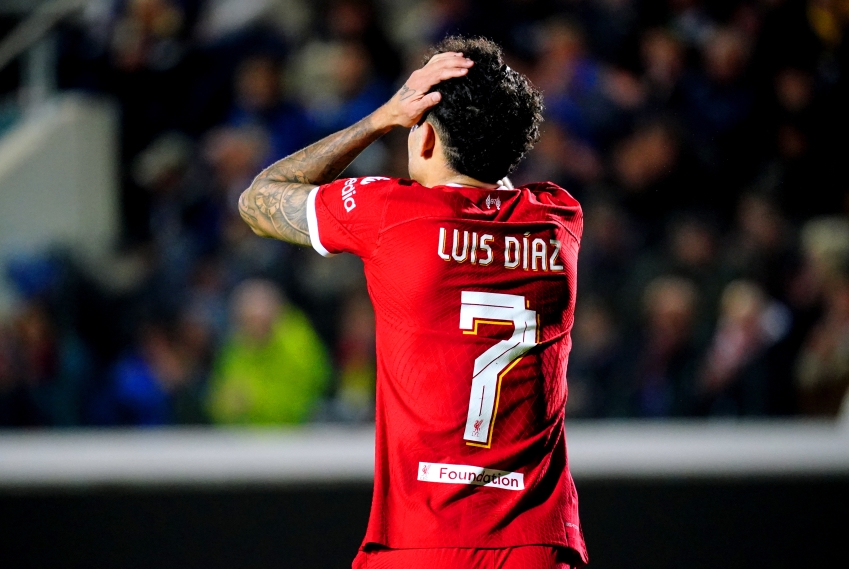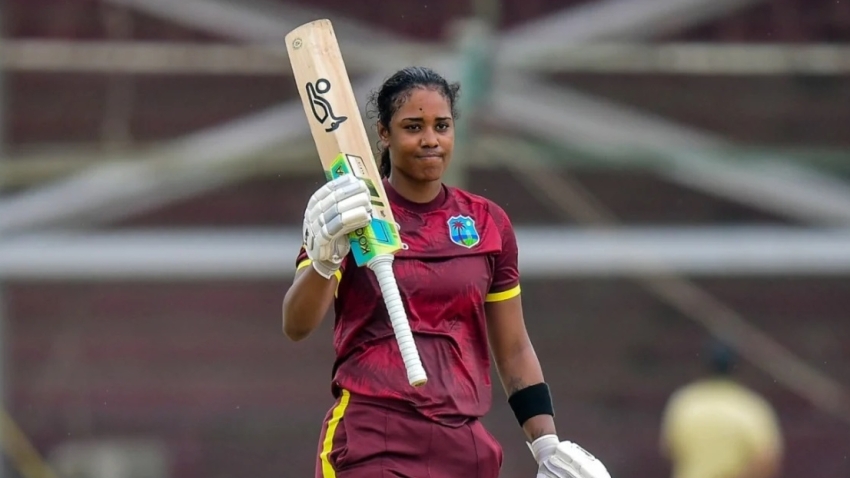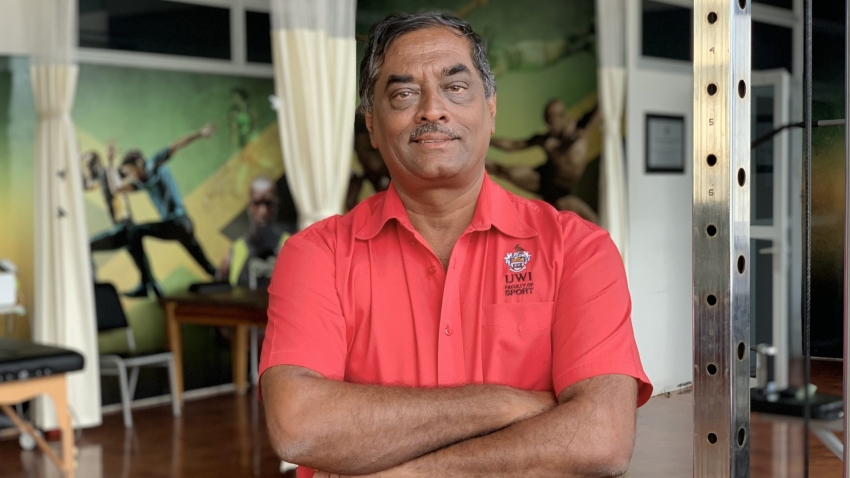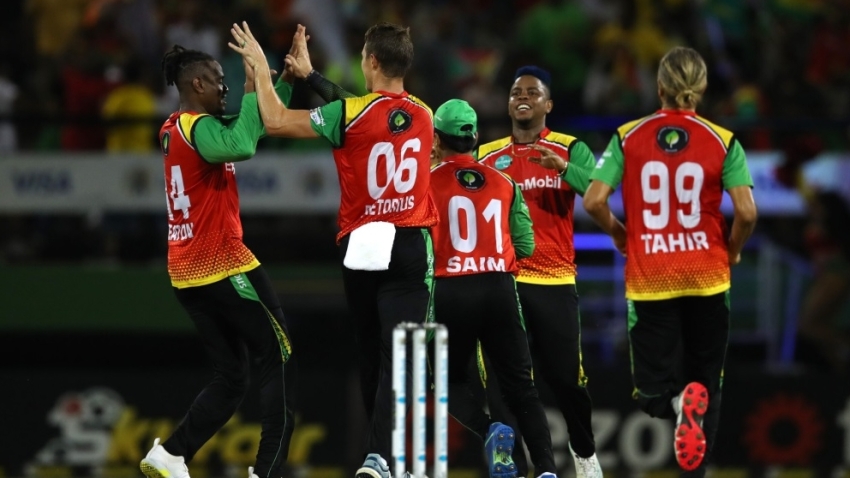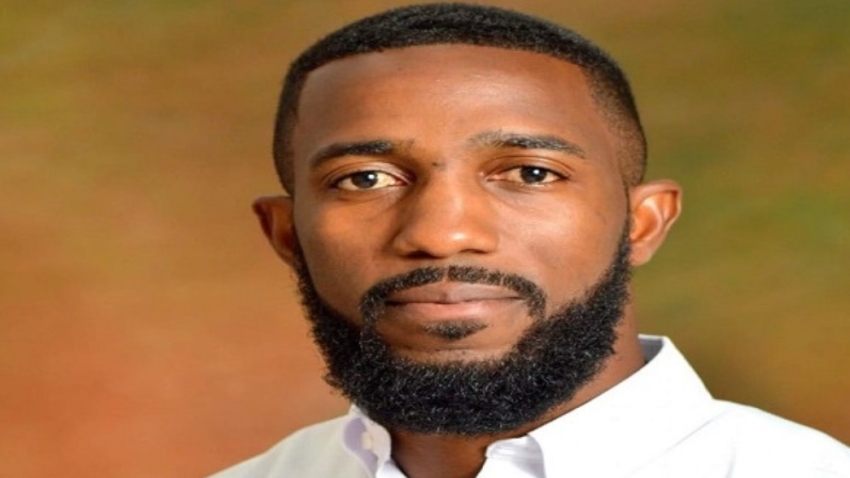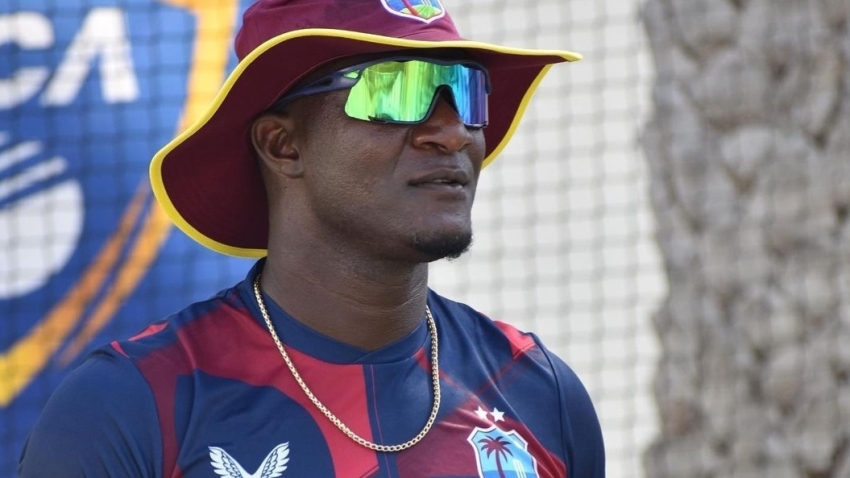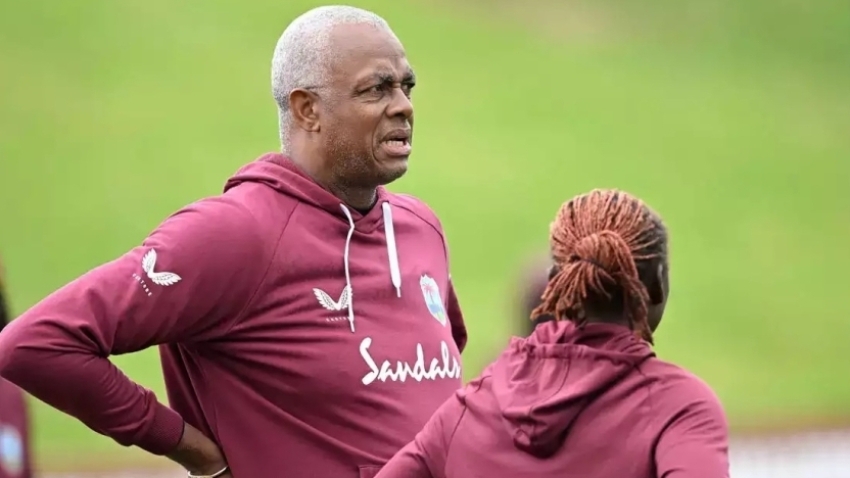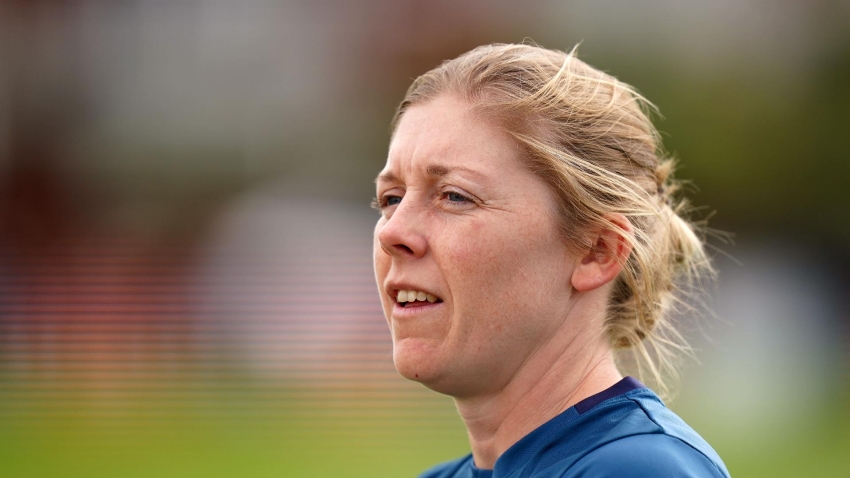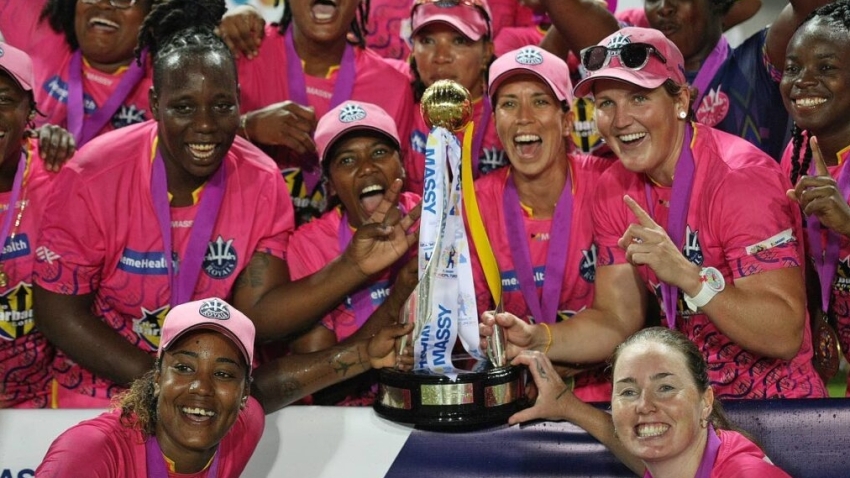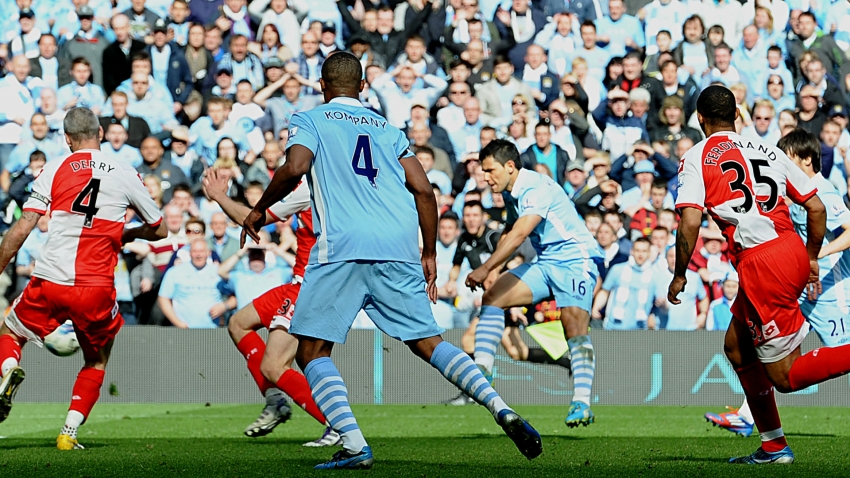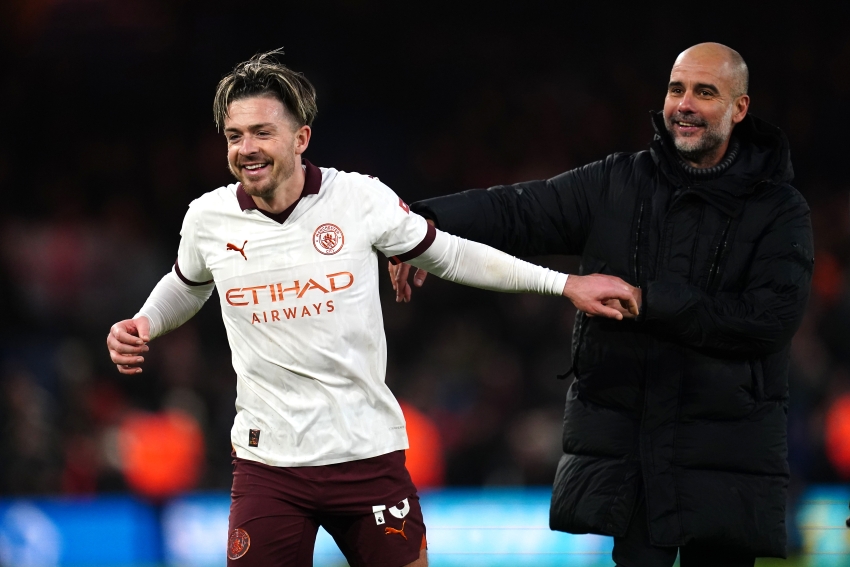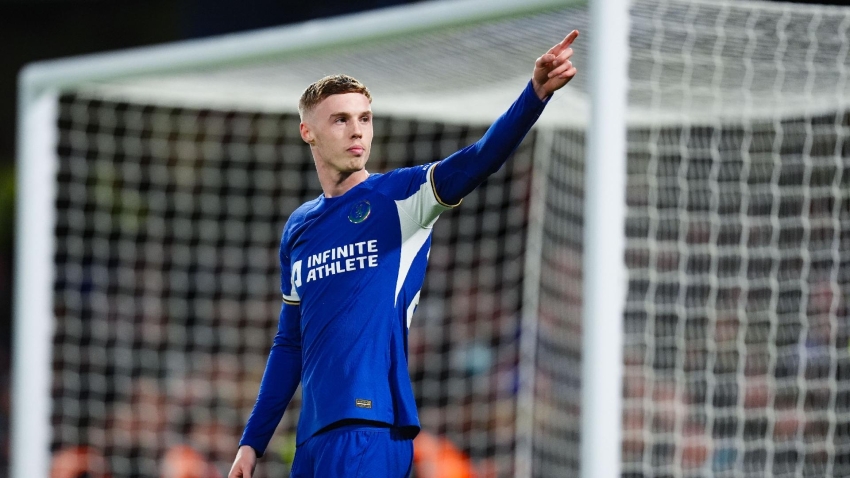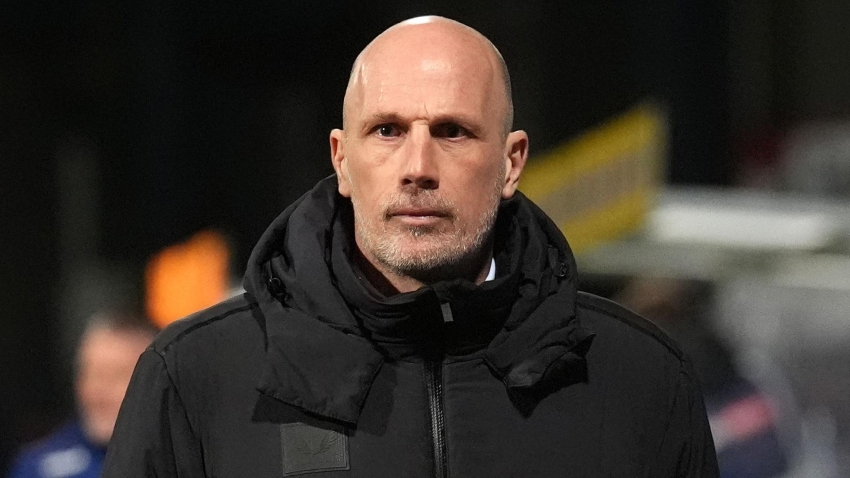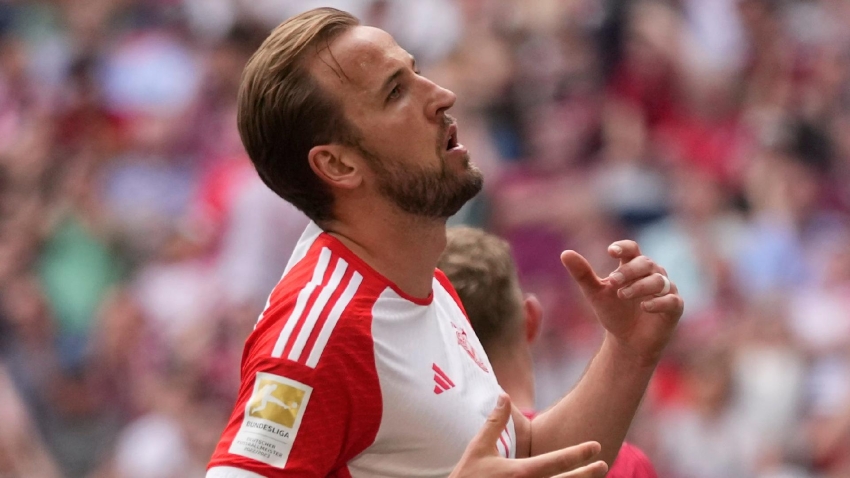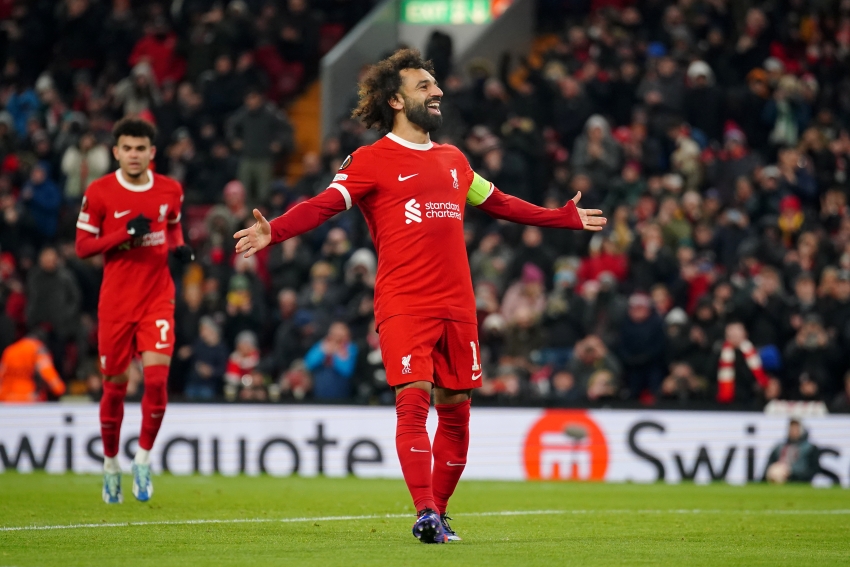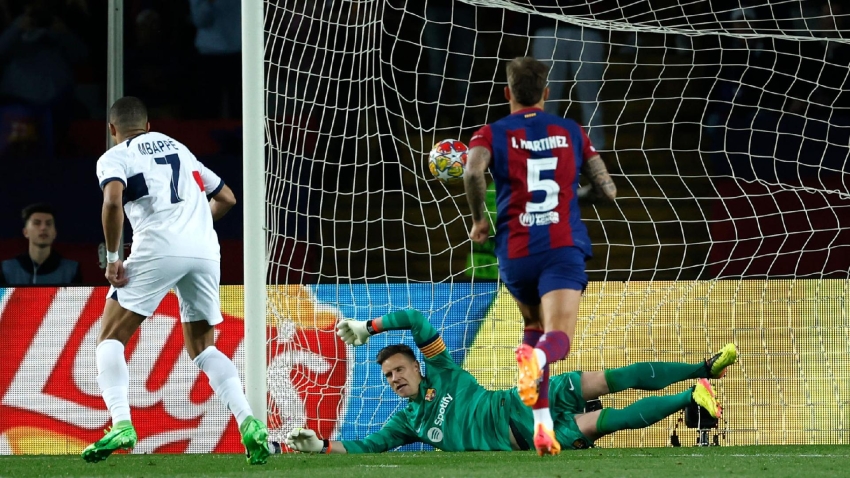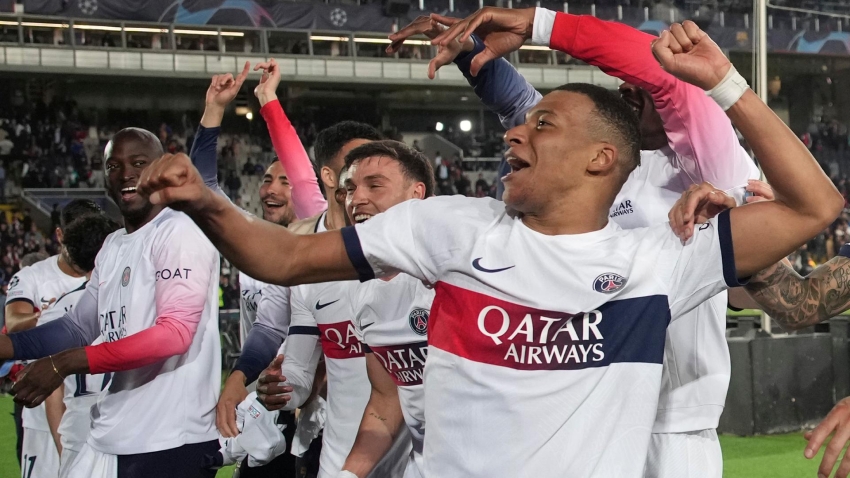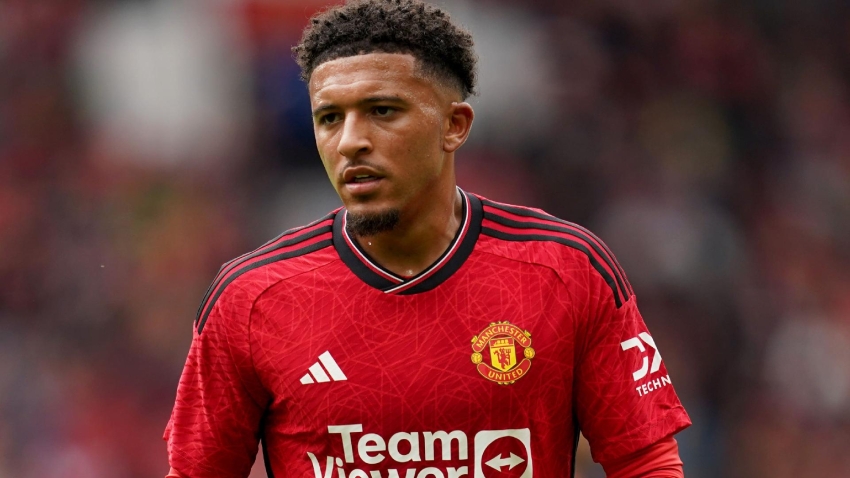A little over two minutes before the moment that will forever define his career, Manchester City hero Sergio Aguero showed sharpness in the QPR goalmouth that would not have been out of place at Old Trafford.
Old Trafford cricket ground that is, just down the road from City's bitter rivals Manchester United and their home of the same name.
As Edin Dzeko's equaliser from David Silva's right-wing corner bounced back off the netting, Aguero pounced, snaffling it like a short-leg fielder and darting back to the centre circle for City's final tilt at the improbable. It was 2-2, the Premier League title could still be won.
There was certainly nothing wrong with striker Aguero's movement after Joey Barton brazenly tried to dead leg him – one of many surreal and key incidents that fed into a frenzied and famous race against the clock on May 13, 2012.
Ten years on, as a statue of Aguero is revealed, this is a reminder of the special moment that brought City their first top-flight league title in 44 years.
The whole story is now as well-worn as any in football history.
On the cusp of a first top-flight title for 44 years, Robert Mancini's Manchester City faced relegation-threatened QPR on the final day of the season. In their previous 18 Premier League home matches that season, they had won 17 and drawn the other – the most recent of those being a 1-0 win over United that tipped a titanic Mancunian tussle back towards the blue side of town.
City simply needed to match United's result at Sunderland and led 1-0 at the interval thanks to Pablo Zabaleta, only for second-half goals from Djibril Cisse and Jamie Mackie to turn the contest on its head.
It remained 2-1 heading into stoppage time despite QPR operating with 10 men. City youth product Barton was dismissed for tussling with Carlos Tevez and responded to Mike Dean's red card by thumping his knee into Aguero's thigh before aiming a headbutt at Vincent Kompany. Fireworks enthusiast Mario Balotelli poured some petrol on this particular bonfire by confronting the combustible Barton as he stomped towards the tunnel.
Aside from that significant blemish, QPR's discipline was impeccable. Despite ceding 81.3 possession overall and 84.1 per cent during the second half, they only made seven fouls. Stoppages were infrequent as City thrashed and flailed with increasing desperation and diminishing artistry around the opposition penalty area.
Without Barton's meltdown, there is little chance five minutes of stoppage time - or the three minutes and 20 seconds they ultimately required - would have been signalled. It was time City desperately needed and time they could put to good use with their top scorer's fast-twitch fibres bristling.
Barton was not the only QPR man with City connections. His team-mates Shaun Wright-Phillips and Nedum Onuoha had also graduated through Jim Cassell's Platt Lane youth system, while Rangers boss Mark Hughes was Mancini's immediate predecessor, having been axed shortly before Christmas in 2009.
Hughes, of course, also played for United with distinction across two spells, and those loyalties struck a chord as news came through Bolton Wanderers had failed to beat Stoke City, meaning the Londoners were safe irrespective of the outcome at the Etihad Stadium.
"[City] got back on level terms and I always remember, at that point, I knew we were safe because the other result came in," Hughes told the Coaches Voice in 2020.
"I'm thinking, 'I wouldn't mind United winning, if I'm honest'. It's 2-2 and Jay Bothroyd looked over, asking what we wanted them to do [from the restart]. The players understood the [Bolton] game was over and we'd stayed up. We just said kick it as far as you can, right in the corner and the game's over."
Hughes' recollections from that point credit City with a poise they absolutely lacked. Rarely can a team have scored twice in this space of two minutes and – save for a crucial few seconds – played so shambolically.
Bothroyd's hoof found touch and scampering Joe Hart ran out of his goal to take the throw-in. The England goalkeeper almost missed the pitch.
Gael Clichy carried the ball down the flank, only for his attempted cross to turn into a block tackle with Mackie. Samir Nasri's aimless, floated effort that followed did little more than give Clint Hill a ninth successful clearance of the afternoon.
Nasri then excelled himself by shepherding the ball out for a QPR throw-in. Just 40 seconds before that explosion of ecstasy there was fury and anguish in the stands. Aguero watched it all from roughly the QPR penalty spot. Apparently he'd seen quite enough.
Aguero honed his lethal skills playing against bigger boys in Buenos Aires on the neighbourhood potrero – the hard gravel and mud neighbourhood pitches that football purists in Argentina bemoan are a diminishing presence.
"When you play you have to think fast. Who to take on, who not," Aguero said when recalling those days in a 2018 documentary for City's in-house television channel. "You know who is going to play dirty, who isn't.
"You start to realise what you can do on the pitch and what you can't."
Reflecting further in the 2019 book 'Pep's City' by Pol Ballus and Lu Martin, he further explained the proving ground that readied him for Barton and others.
"Getting kicked black and blue was all part of the game," he said. "You held on to the ball any way you could.
"Running with the ball was a whole different concept for us. I'd be up against big, tough boys and I was always the smallest. But I learned how to survive."
Aguero remembered those matches were played for the prize of a peso, which would garner one of his favourite sweet treats, an alfajor or dulce de leche.
As United's players took in full-time and three points at the Stadium of Light, and Nigel de Jong brought the ball forward in Manchester to the soundtrack of QPR celebrations – their fans aware of Bolton's fate – the stakes were somewhat higher.
Vacating his spot in a penalty area already crowded by substitutes Dzeko and Balotelli, along with a marauding Kompany, Aguero took possession from De Jong 30 yards from goal.
He faced up to a compact QPR back four, with the visitors' four midfielders all in his immediate vicinity.
A shuffling touch to his left engineered space outside Shaun Derry, but Aguero needed help. Ideally from someone reliable, given the complete lack of any margin for error.
Balotelli was on the pitch in a Manchester City shirt for the first time in over a month.
Mancini had not trusted his wayward protege since a red card in a 1-0 Easter Sunday defeat at Arsenal left City eight points behind United with six games to play. Tevez represented a far more dependable option.
But with nowhere left to turn, Aguero dared and prayed for Mario to be super.
Introduced in the 76th minute, Balotelli gave the impression he had not just been banished from Premier League arenas, but football pitches altogether since his previous game.
The Italy striker managed to run through seven goal attempts – two on target, five blocked – during a frenzied cameo. It was probably as well Aguero found him with his back to goal, inside the D and grappling with Anton Ferdinand.
"I tried to control the ball and I had a contact from the defender and the ball went a little bit far from my foot," Balotelli told City TV five years on. "I thought in that half second there is maybe going to be a little bit of space for Sergio."
If Balotelli had stayed upright, the likelihood is QPR would have seen through their final piece of dogged tireless defending. In being forced on to his backside for the only assist of his Premier League career, he created opportunity and chaos.
Facing his own goal, Derry had to hurdle a prone Balotelli, while Wright-Phillips' route back to defend was also compromised. With his centre-back partner grounded, Hill held his position square on, while Kompany's haring towards the six-yard box dragged left-back Taye Taiwo with him.
A pocket of space opened up. A spot of turf Balotelli was able to locate from his sedentary position. As limbs flailed around him and a tight defence scattered, Aguero was thinking fast.
Argentina's tradition of tough, uncompromising neighbourhood football goes hand in hand with the mystique and mythology that cloaks the country's national sport.
A playing style grounded in skill and improvisation – La Nuestra, which translates as "our way" – was locked into the collective consciousness during the first half of the 20th century. The pre-eminent football magazine El Grafico, served to deepen this romantic attachment, with depictions of the pibe – literally a kid or urchin, whose rough and ready footballing technique combined street smarts and skill and was something of an archetype. Typically they would dribble in the gambeta style, a description that implies close control, cunning and deceit of opponents.
The idea that the likes of Diego Maradona, Ariel Ortega, Lionel Messi and all those other squat, explosive and technically brilliant attackers from Argentina immersed themselves in the yellowed pages of El Grafico archive is far-fetched, but the style is unquestionably embedded. Think of the amount of barrelling, dribbling goals such players have produced – close control, small pauses and faints as thighs piston their way through defences.
As the walls were closing in on City's title bid, Aguero showed himself to be a proud product of this lineage. When Balotelli began his battle against gravity, he deftly checked his run behind and around Wright-Phillips to open up a path to the penalty area.
Letting the pass roll, he shaped to shoot, drawing a scampering Taiwo, who left his Kompany decoy a little too late to remain in control. Aguero did not actually touch Balotelli's return pass until his body position persuaded a rash slide tackle that he nudged beyond with the outside of his right boot.
With Taiwo suitably gambeta'd, there came one last stroke of fortune.
"I touched it again and saw I was close to the goal, so I said 'I'll shoot'. The worst thing was that I wanted to shoot hard across goal and it went to the near post, I don't know what happened," Aguero told TyC Sports – the latter sentiment at least aligning him with every soul inside the Etihad Stadium that day.
"After watching it back, I realised that if I had shot across goal a defender could have blocked it. I celebrated the goal and told everybody, 'I hit it so well!'."
Goal 23 of a personal Premier League tally that reached 184, one of 130 with Aguero's ferocious right boot, understandably left an indelible impression on the suddenly defeated Hughes.
"Of all the games I've been involved in, that noise at that moment when that goal went in is different to anything I've ever heard before or since," Hughes said.
"It was just unbelievable sound – different sound to a football crowd. It was a mixture of screaming and noise. It was just an unbelievable moment."
That racket has since been replayed thousands of times across the world. A goal on a tightrope that altered the course of English football, which began with gifting the opposition a 92nd-minute throw-in and ended thanks to a miscue after the main protagonist's strike partner fell over.
It is the Premier League's most famous goal – a moment as synonymous with Manchester as cotton mills and the Hacienda, and yet Argentinian to its very bones.
Whether 10 years on, 20 years on, or 50 years on, expect to see it replayed another few thousand times. On the blue side of Manchester, it stands as an immortal moment.


